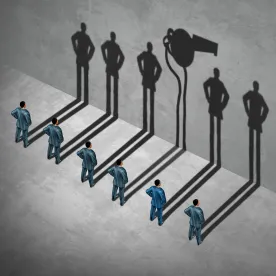In response to an inquiry from a local lawmaker on the mechanisms available to whistleblowers, the local Commission Against Corruption in Macau stated that they do not guarantee anonymity because it is not technically required by the Convention Against Corruption* and that anonymous reports are harder to investigate. The Commission claimed that two-thirds or 66% of these anonymous reports were deemed to be groundless in 2019 and that neither the CCAC nor the Public Administration and Civil Service Bureau have received any reports regarding retaliation taken against whistleblowers.
From a U.S. perspective, these claims are incredible and highly suspect. The statistics on whistleblowing in the U.S. show retaliation is a problem that even a system with anonymous and confidential procedures cannot entirely eradicate. In fact, in 2018, a study found that 44% of whistleblowers who reported company misconduct also reported some form of retaliation for speaking up; a 2010 survey found that seventy-four percent of whistleblowers lost their jobs; while in a 1990 study 60 percent of whistleblowers reported losing their jobs, another 11 percent had their job responsibilities, salary, or both reduced, and 18 percent experienced other forms of harassment, and only 5 percent reported experiencing no retaliation.
Moreover, although anonymous reports may include baseless tips, research has found that anonymity is a key factor in whistleblowers’ decisions to come forward. Therefore, the CACC is focusing on the wrong data: whether or not baseless reports come in is not as important as making sure that genuine whistleblowers are encouraged to make tips in the first place. Additionally, it is not clear if the percentage of baseless tips from anonymous whistleblowers is more than the baseless tips received from non-anonymous whistleblowers. This is a key comparison to determine whether there is any true connection between anonymity and baseless tips.
Although the CCAC explained that if the whistleblower expresses their reluctance to have their identity revealed the Commission has internal mechanisms to take note of the request and handle information relating to their identity with extra caution, such a flimsy assertion is likely not enough to encourage whistleblowers afraid of retaliation to come forward.
The CCAC should consider implementing a program similar to the highly successful U.S. Security & Exchange Commission’s whistleblower program through which whistleblowers can submit tips if they are filed by an attorney who has certified the accuracy of the tip to the best of the attorney’s knowledge and who has verified the whistleblower’s identity and can, therefore, contact the whistleblower on the Commission’s behalf to make the follow-up investigation easier.
*Note: The People’s Republic of China ratified the Convention Against Corruption in 2006 and required the special administrative regions of Macau and Hong Kong to abide by its provisions.



 />i
/>i
